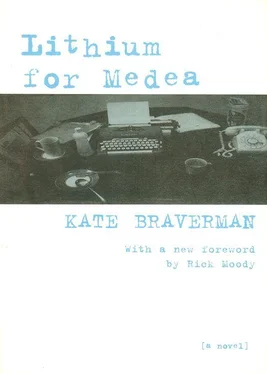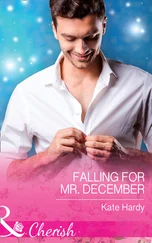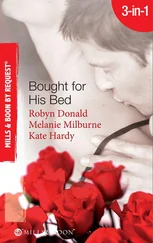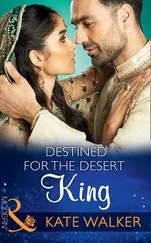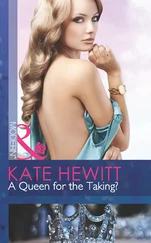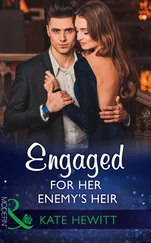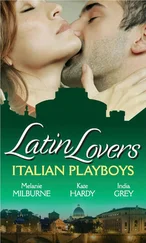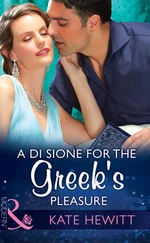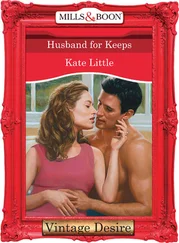He hunches up his shoulders and swoops me up. I ride on his shoulders. He makes his arms go out wide at his sides like wings. He carries me that way all through the house.
“Where are you going?” Francine asked. Her face seemed broken, pale, unsolid.
“To take my best shot,” I said. I kept walking.
It was morning, still before noon. The sky was a sheer blue. The haze had lifted. The day was becoming strangely hot. It seemed a wind was somewhere beginning. I had a sense of being watched.
When I came home, Jason was gone. I could still smell my father, the chill, the sense of rotting fibers in the cobalt-scarred flesh refusing to heal on my father’s butchered neck. I could still breathe in a sense of blood, contamination and evil, evil.
The telephone rang. “The doctor just left his room,” Francine whispered. “He brought in a heart machine.” My mother took a deep breath. “The doctor said he may be slipping.”
“He’s going to live,” I told her. “The crisis is passing.”
I still felt chilled inside, felt my bones branching out in cold spokes sharp and blank as twigs in winter. Philadelphia in winter. The whittled branches. The mounds of soft snow pressing against the front door. Daddy finds his shovel and digs us out. A new channel. We are saved again. We are grateful. We watch Daddy drive away.
I sat down on my front porch. It was time to consider death. Death was clever. Death was a taker who left nothing, who even hid the bone. Death had great shadowy arms and shale breath. Death was big. It had teeth and wings. It left claw marks in the skin, torn-out flesh pockets and rows of black stitches, black stitches like train tracks in snow. It could make a big man into a boy. It could make a big man talk funny, talk wormy. And death would have to be considered now, in the slow noon before the world began to spin again into the black, sky filled with ink-squid blood stinking, seething and hungry to bury someone.
My father had pulled out his tubes. He had shadowboxed death in the middle-of-the-night hospital corridor. He had done battle alone. A force had been tapped into, a passageway perhaps inadvertently etched out. It still stirred. It stretched out enormous scale-encrusted arms. It had talons and fangs. It took bites out of the sick and helpless. It stank. Its breath was a dull wind on cobblestone alleys cut between ruins of buildings, narrow ruts of stone streets smelling from the piss of a thousand generations of beggars and cripples and lepers.
A door had been opened. It would have to be closed.
The early afternoon was a glassy blue, pale as imitation amethyst. The afternoon was unusually clear.
The full horror was slowly leaking down, the way rain fights to enter blank dry dirt. My father might not live through the night. I thought of my father with his fresh scars burning. My father webbed in white and counting his missing parts. The hollowed out neck and tongue, part of the cheek gone, vocal cords gone, gone. My father sat on the horizon, an undecided exploding red sun.
I sat in the kitchen alcove of Jason’s studio, at the table my father found for me in a used furniture store. A kitchen table, symbolic, a woman’s anchor, a gift for a daughter. The cat Picasso sat on the chair next to me. Jason’s car was gone. I had asked him to wait for me. I told him it was the first thing I had asked of him in a long time, years perhaps. And Jason was gone.
Picasso licked his right front paw. It was simple. If my father could just live through the night the storm would pass, spent and forgotten. Winter would pass. There would be a chorus of erupting blossoms and drugged insects, spring and the possibilities strung fat red and yellow on the vines.
The day turned strangely hot. I heard sirens. I thought, you must not die, Father. Be slowly warmed. The worst is behind you. The singed canyons are spitting new cactus. You have lived through the cruel turn from the sun. Believe me, Father. Winter is over. You have survived it.
The afternoon seemed suspended. The heat increased and turned harsh. Sirens shattered the late afternoon shadows. I heard ambulances and howls. The Santa Ana winds were blasting through the streets, bristling and smelling of desert, of white sunlight, sharp wiry plants and white rock.
The winds had a taste. I thought of scrub brush and the thorns desert plants wear. A hot madness was enclosing the city. It found me. It could inch east to my father’s hospital bed. It could pry him from the oxygen again and the saline stuck in his hand. A small crucifixion. And what if the winds burned their way across the city to him?
Night was sharp and clear and hot. Jason didn’t come back at dusk. I sat in his empty studio. Picasso and I regarded one another. Night was a black trench. The moon hung in the dead center of the window, absolutely round, a mirrory disk embedded in the night’s throat.
Picasso felt the winds ripping at the house. He could sense the full moon’s special heat and how she seemed to call to him with longing, a strange circular lust. He was agitated. He wanted to go outside, wanted to taste moon sheen, that white light substantive as snow. He wanted to brush his claws against the night bodies of conspiring plants. He longed to hunt and make his throat ripple with small growls like small harbor waves. He wanted to draw blood.
I watched him for a while. Then I closed the door leading to the front room. I picked Picasso up. He settled into my lap.
I stroked the cat. I rubbed his back. I noticed his long fur was badly matted. Jason rarely brushed him. Pieces of things were caught in his coat, twigs and leaves and small round oil stains from sitting under cars. His long bushy tail was tangled up around a green vine. I realized that he looked as if he were already growing out of the earth.
I rubbed Picasso under his chin and thought, what retrograde centuries to beach you thus small and inconsequential. Remember when you were predator? When you dreamed bigger than lizard and mouse and blue jay? You knew the way to the jugular, the way through the jungle, the millenniums of yellow wind in yellow grasses.
I pushed at an oil stain on his head with my thumb. The cat purred. The moon seemed oddly and whitely hot. I had the sense of being watched.
I have things to tell you, little one. There is another man. He is my father. He is being held in a white web by a black spider. An enormous spider with a command of technology and history. A black spider who practices the cruel art of knives. He is being slowly eaten. He is being skinned alive. I know you have a certain appreciation for a slow and painful death. I have watched you torture birds, watched your claws dart across a feathery neck. I have seen you intoxicated by blood.
There is another matter. It is a thing called cancer. Hard claws were jammed through my father’s mouth. It took his tongue and throat. They cut the first grooves. Later roots took hold, blood-fed and blood-warmed. They sprouted buds. He was colonized.
Now his face is dark and swollen. Bandages form a thick collar around his gutted neck. They sprout tubes for feeding and bleeding, branches. Why, he’s part tree now. And he always thinks it’s six o’clock, time for the news and a shot of bourbon. Time for a cigar and the next day’s racing form.
I watch his mouth twist and curl. He tries to make sounds that no longer come. I can barely read his scrawled notes. Over and over again I explain the oxygen machine to him. Perhaps he hears it hiss. He points to it and scowls.
Do you see what I’m getting at, cat? There are certain channels, small crevices in life as we pretend to know it. There are places where the hand-painted mural that is the world separates into individual tiles/time/cells. These cracks in the fabric can be lethal.
Читать дальше
